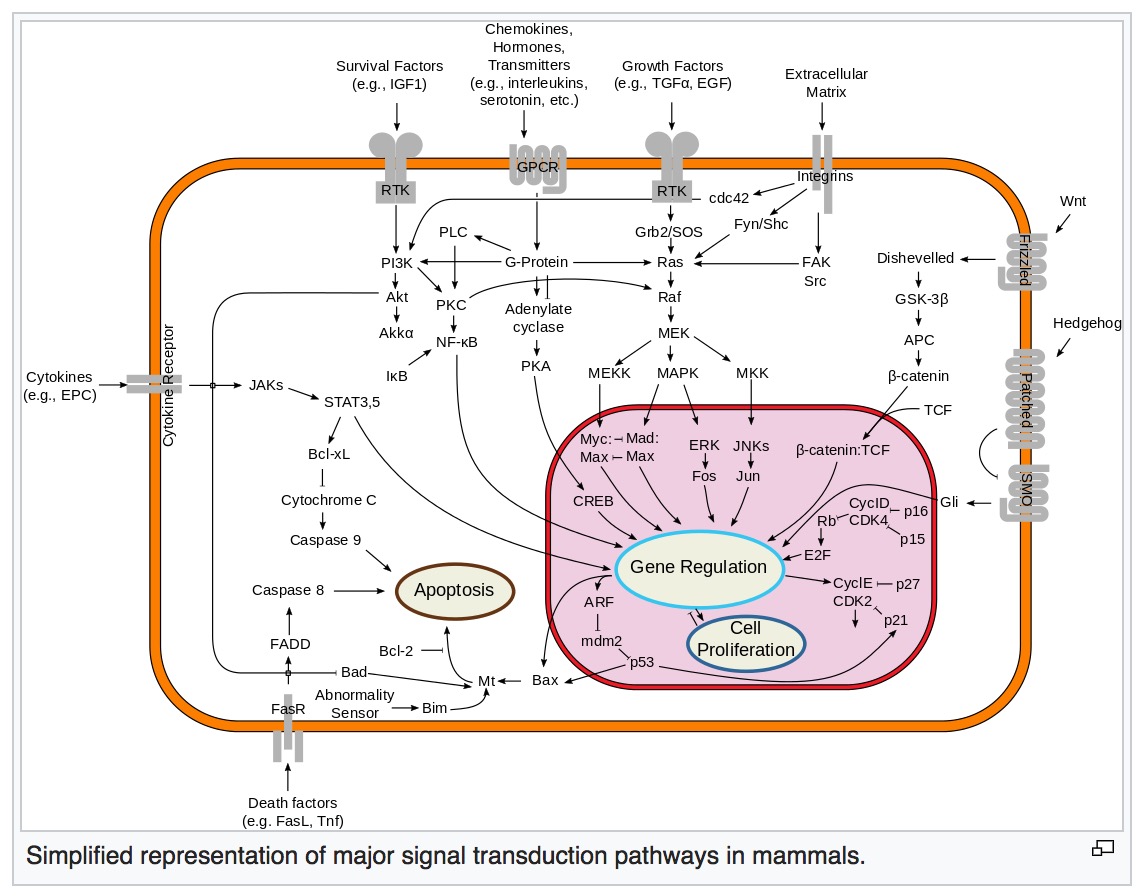Ras
Ras is a family of related proteins which is expressed in all animal cell lineages and organs. All Ras protein family members belong to a class of protein called small GTPase, and are involved in cellular signal transduction. Ras is the prototypical member of the Ras superfamily of proteins, which are all related in 3D structure and regulate diverse cell behaviours.
When Ras is 'switched on' by incoming signals, it subsequently switches on other proteins, which ultimately turn on genes involved in cell growth, differentiation and survival. Mutations in ras genes can lead to the production of permanently activated Ras proteins. As a result, this can cause unintended and overactive signaling inside the cell, even in the absence of incoming signals.
Because these signals result in cell growth and division, overactive Ras signaling can ultimately lead to cancer.
The 3 Ras genes in humans (HRas, KRas, and NRas) are the most common oncogenes in human cancer; mutations that permanently activate Ras are found in 20% to 25% of all human tumors and up to 90% in certain types of cancer (e.g., pancreatic cancer).
For this reason, Ras inhibitors are being studied as a treatment for cancer and other diseases with Ras overexpression.
Current standard treatment for glioma patients is surgical removal followed by radiotherapy and adjuvant chemotherapy. Due to therapeutic resistance and tumor recurrence, efforts are ongoing to identify the molecules that are fundamental to regulate the tumor progression and provide additional methods for individual treatment of glioma patients. By studying the initiation and maintenance of glioma, studies focused on the targets of tyrosine kinase receptors including EGFR, PDGFR and other crucial signal pathways such as PI3K/AKT and RAS/RAF/MAPK pathway. Furthermore, recent advances in targeting immunotherapy and stem cell therapy also brought numerous strategies to glioma treatment 1).
